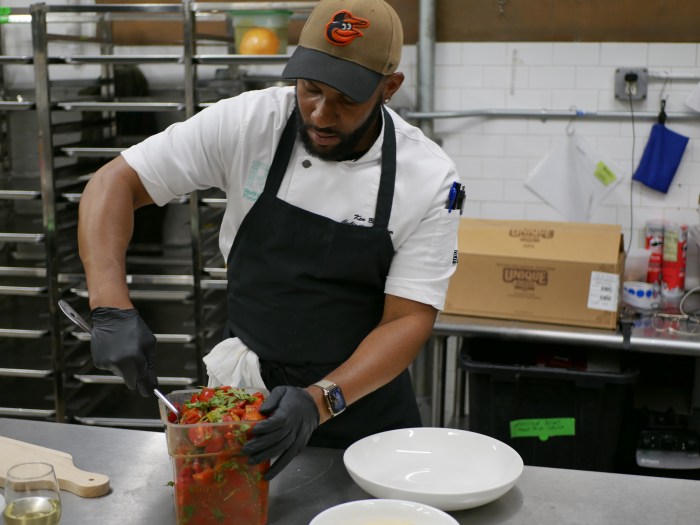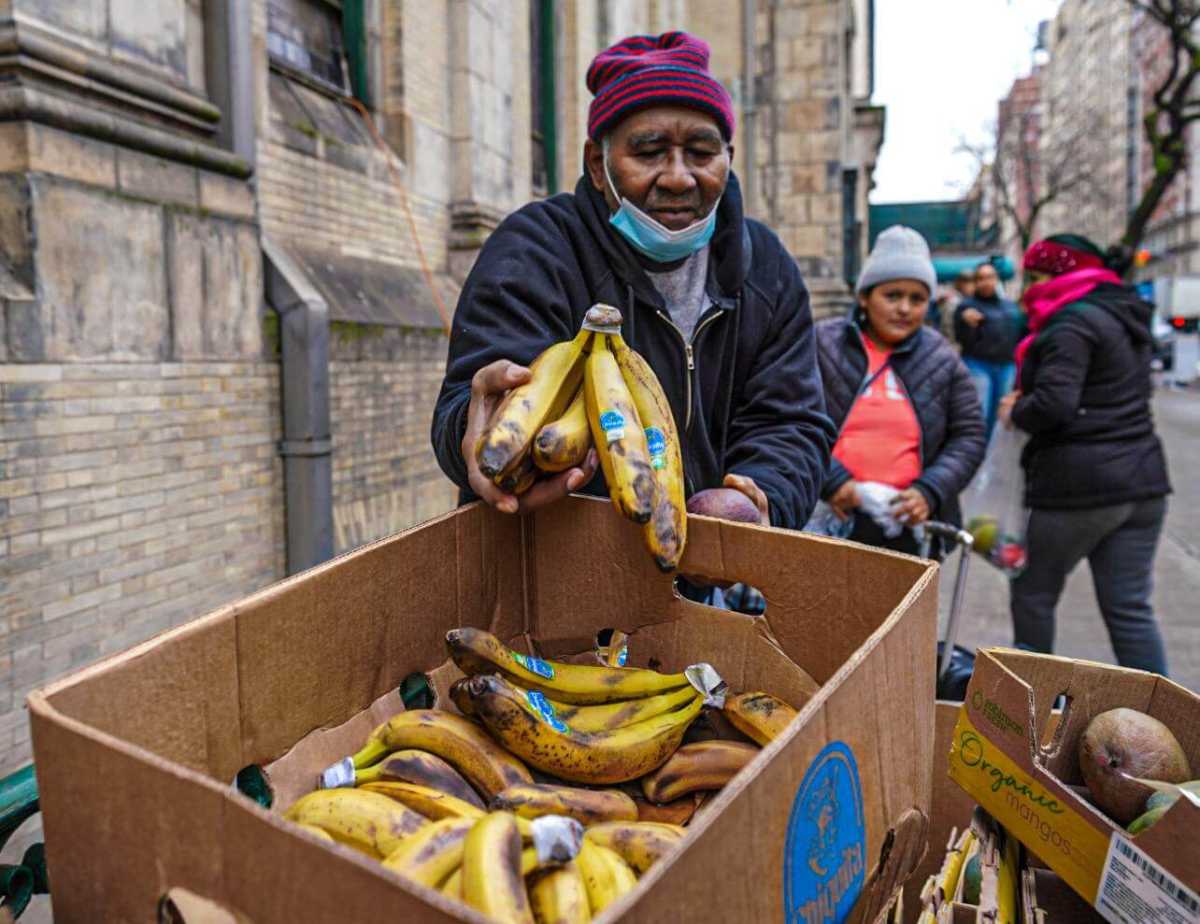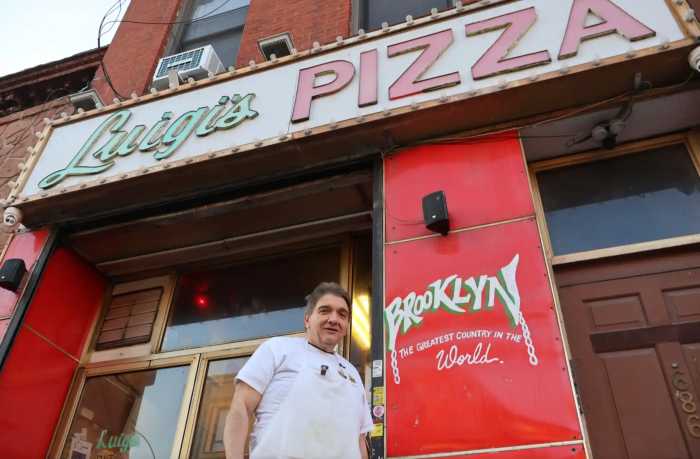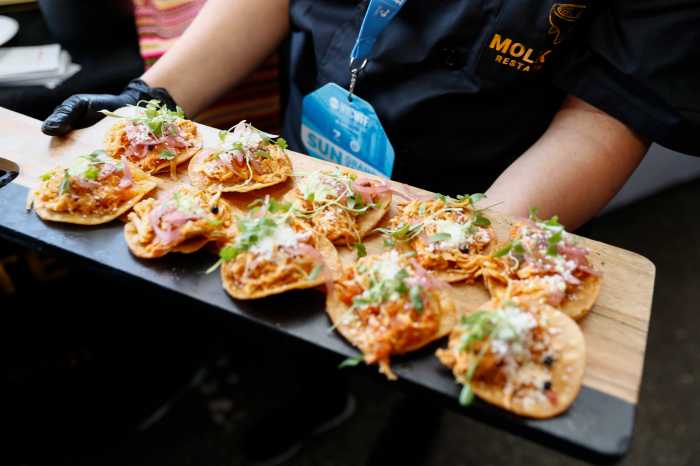More than a million people currently face food insecurity in NYC — struggling to afford basic nutrition to keep themselves and their families fed.
That number includes not only homeless individuals suffering from food insecurity in NYC, but also other New Yorkers facing high costs of living, according to nonprofit and government agency leaders.
During Hunger and Homelessness Awareness Week, Nov. 17-23 this year, Matt Jozwiak, co-founder and CEO of Rethink Food, is spotlighting the importance of alleviating high costs of food, high prices and food insecurity around the Big Apple. He said it is not only homeless New Yorkers who experience hunger but middle and low-income earners, too.
“I think it’s great we’re getting people to talk about it, but it’s really about wealth and equality,” Jozwiak said. “In New York, you have two different economies. The super-wealthy and then a subset of people who are not able to make ends meet. They can’t afford the $16 salad. It’s hard to live.”
To combat this new look of hunger, which he said is far from the “long bread lines of the 1920s,” Rethink Food works to bridge the gap between excess food so often made in restaurants and people in need.
The organization partners with around 50 cafes, delis and restaurants to prepare and deliver more than 30,000 meals a week to local community-based organizations in all five boroughs.
“Restaurants provide so many benefits to neighborhoods because the people who work there get to eat for free,” Jozwiak said. “Almost every restaurant in the city has at least one free meal a day for the staff. If you take all the restaurants in NYC and put it together, that would probably be the biggest food insecurity nonprofit in New York.”
And it goes beyond the staff, Jozwiak said.
“So the restaurants make a lot of food for people. A lot of them let people take leftovers home. We try work with businesses that are like-minded like that, and then have them cook meals for community centers, after-school programs, churches,” he said.
Some of the restaurants Rethink Food works with include Bistro in the South Bronx and Brain Food in Brooklyn.

Food insecurity in NYC
Hunger and Homelessness Awareness Week is a nationwide effort, organized by the National Coalition for the Homeless, the National Student Campaign Against Hunger and Homelessness, and other groups, aims to increase public understanding of food insecurity and housing challenges.
As costs of living and inflation continues to surge across the states, the statistics on food insecurity locally are grim.
According to recent data on food insecurity in NYC from Feeding America’s Map the Meal Gap 2024 report, over one million people experience food insecurity, or about 15% of the population.
“More than 1.2 million New Yorkers experience food insecurity, and nearly half of working-age households do not have incomes that cover basic needs like housing and food,” Kate MacKenzie, executive director of the Mayor’s Office of Food Policy (MOFP), said. “This leads to the unfortunate reality of having to choose between food and rent.”
In addition to organizations like Rethink Food, the MOFP is currently organizing initiatives to address hunger.
Through its Community Food Connection (CFC) program, the department funds various kitchens and food pantries across the city.
“The Mayor’s Office of Food Policy advances policies and programs to ensure that all New Yorkers have multiple ways to access healthy, affordable and culturally appropriate food,” MacKenzie said. “The key to eliminating food insecurity is to enable New Yorkers to have stable incomes with wages and salaries that enable self-sufficiency.”
MacKenzie underscored the importance of community-based partners to ensure her department reachers all New Yorkers in need.
In fiscal year 2023, the CFC saw over 26 million visits and provided over 40 million pounds of food to community-based food programs across the city.
MacKenzie also recognized the importance of nonprofits that supply food and help the local economy.
“We appreciate the work of organizations like Rethink Food, that not only provide healthy meals, but do so by supporting many small businesses in the communities they serve,” she said.


































